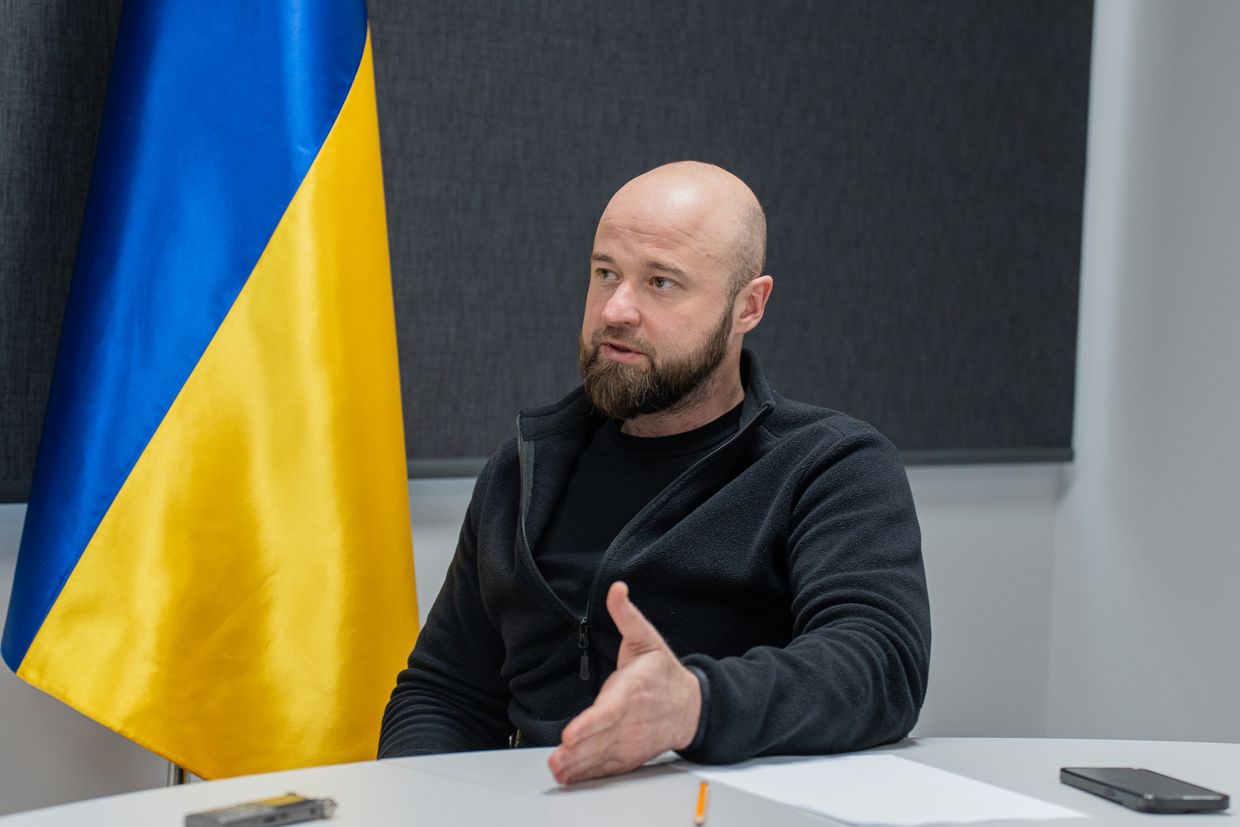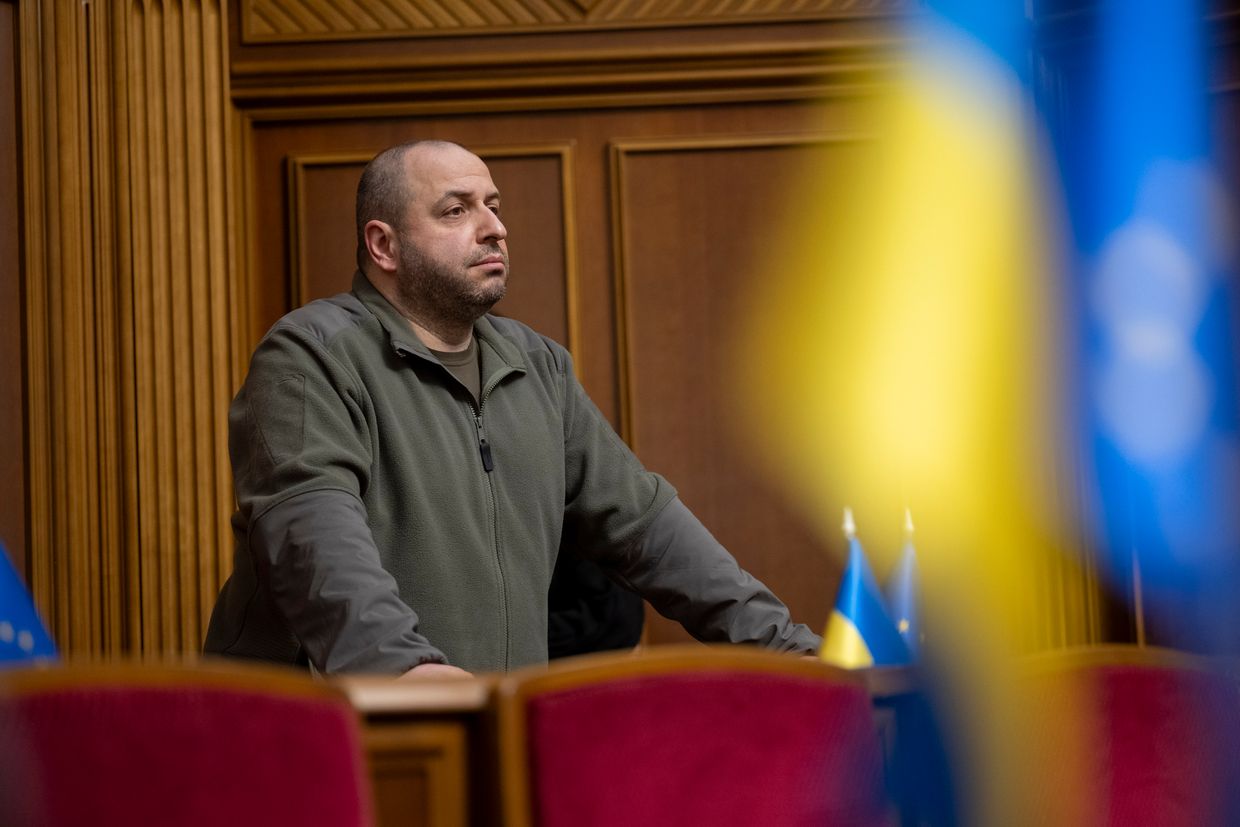Kremlin spokesperson Dmitry Peskov rejected the idea of a 30-day ceasefire between Russia and Ukraine, claiming in an interview with ABC News on May 10 that it would be "an advantage" for Ukraine.
The visit marks Merz’s first trip to Ukraine, and the first time all four leaders have travelled there together.
"Our involvement in the war was justifiable, and this belongs to our sovereign rights," North Korean dictator Kim Jong Un said. "I regard this as part of the sacred mission we must execute for our brothers and comrades-in-arms."
The number includes 1,310 casualties that Russian forces suffered over the past day.
"We have a plan B and a plan C. But our focus is plan A, the essence of which is to get everyone's support" for Ukraine's accession, EU foreign policy chief Kaja Kallas said.
"(T)he presence at the Victory Parade of a country that bombs cities, hospitals, and daycares, and which has caused the deaths and injuries of over a million people over three years, is a shame," Polish Prime Minister Donald Tusk said.
"According to the participants of the performances, their goal is to remind the civilized world of the barbaric actions of Moscow, which for many years and decades has systematically violated international law," a source in Ukraine’s military intelligence agency (HUR) told the Kyiv Independent.
"I have great hope that an agreement for a ceasefire in Ukraine will be reached this weekend," German Chancellor Friedrich Merz said on May 9, shortly before traveling to Kyiv alongside the leaders of France, Poland, and the U.K.
U.K. Prime Minister Keir Starmer, French President Emmanuel Macron, German Chancellor Friedrich Merz, and Polish Prime Minister Donald Tusk will arrive in Kyiv early on May 10.
The United States embassy in Kyiv on May 9 issued a warning that Russia could launch "a potentially significant" attack in the coming days, despite Putin's self-declared Victory Day "truce."
The sanctioned oil tankers have transported over $24 billion in cargo since 2024, according to Downing Street. The U.K. has now sanctioned more shadow fleet vessels than any other country.
The sanctions list includes 58 individuals and 74 companies, with 67 Russian enterprises related to military technology.
Government dismisses Deputy Defense Minister Klimenkov amid procurement tensions

Ukraine's government has confirmed the dismissal of Dmytro Klimenkov from his position as deputy defense minister, said Taras Melnychuk, the government's parliamentary representative, on Jan. 28.
The decision follows ongoing tensions within the Defense Ministry over its weapons procurement process, which has been heavily scrutinized amid reform efforts.
Defense Minister Rustem Umerov announced Klimenkov's dismissal last week, claiming his deputy had "failed" the task of defense procurement. Concurrently, Umerov said he would not renew Maryna Bezrukova's contract as head of the Defense Procurement Agency (DPA).
Klimenkov joined the Defense Ministry from the State Property Fund, where he worked under Umerov's leadership. Appointed deputy defense minister on Oct. 5, 2023, he was responsible for overseeing procurement for the Armed Forces.
Bezrukova, appointed in January 2024 to lead procurement reforms following corruption scandals, had her contract extended by the DPA's supervisory board earlier this month. Under Ukrainian law, supervisory boards can hire and fire state enterprise leaders, making Umerov's refusal to renew her contract legally contentious.
Anti-corruption activists and lawmakers criticized the move, labeling it "unlawful" and warning that such actions could undermine efforts to reform Ukraine's defense procurement system.
Bezrukova's tenure highlighted internal disputes over procurement practices. At the start of her role, Bezrukova reported pressure from Klimenkov to sign a contract for 500,000 artillery shells from a manufacturer owned by the Strategic Industries Ministry.

She expressed concerns about the company's limited production capacity, workforce shortages, and gunpowder deficit. The National Anti-Corruption Bureau (NABU) also investigated the manufacturer's director and a manager for inflating prices.
An initial Defense Ministry inspection supported Bezrukova's concerns, estimating the company's capacity at 300,000–350,000 shells. However, the ministry later reversed its assessment, asserting that the company could meet the contract requirements.
Despite reservations, Bezrukova signed the contract. By the summer, the manufacturer fell behind schedule. When Klimenkov asked her to extend delivery deadlines, Bezrukova refused and pushed for alternative suppliers, straining her relationship with ministry officials.
The Defense Ministry announced on Nov. 26 that it was investigating the contract and would pivot to delivering imported shells instead.

Most Popular

After 3 years of full-scale war in Ukraine, Europe announces plan to ban all Russian gas imports

Ukraine, Europe's ceasefire proposal includes US security guarantees, no recognition of Crimea, Reuters reports

Journalist Roshchyna's body missing organs after Russian captivity, investigation says

After Russia's deadly attack on Kyiv, Vance reposts denunciation of Zelensky

Ukrainian sea drone downs Russian fighter jet in 'world-first' strike, intelligence says
Editors' Picks

How medics of Ukraine’s 3rd Assault Brigade deal with horrors of drone warfare

As Russia trains abducted children for war, Ukraine fights uphill battle to bring them home

'I just hate the Russians' — Kyiv district recovers from drone strike as ceasefire remains elusive



